Classification Improvement of P300 Response Based Auditory Spatial Speller Brain–Computer Interface Paradigm
IEEE TENCON 2013——The aim of the presented study is to provide a comprehensive test of the EEG evoked response potential (ERP) feature selection techniques for the spatial auditory BCI–speller paradigm, which creates a novel communication option for paralyzed subjects or body–able individuals requiring a direct brain–computer interfacing application. For rigor, the study is conducted with 16 BCI–naive healthy subjects in an experimental setup based on five Japanese hiragana characters in an offline processing mode. In our previous studies the spatial auditory stimuli related P300 responses resulted with encouragingly separable target vs. non-target latencies in averaged responses, yet that finding was not well reproduced in the online BCI single trial based settings. We present the case study indicating that the auditory spatial unimodal paradigm classification accuracy can be enhanced with an AUC based feature selection approach, as far as BCI-naive healthy subjects are concerned.
关键词: 单峰模式分类精度 AUC特征 脑电诱发反应电位 新型通信 IEEE TENCON 2013
主讲人:Moonjeong Chang 机构:Life Science Center of TARA University of Tsukuba Tsukuba, Ibaraki, Japan
时长:0:10:31 年代:2013年
热点排行
- 1 英语学习策略(1)
- 2 《图书馆与信息服务营销》先导片
- 3 古兽重现
- 4 Excel实战技巧精粹
- 5 在路上
- 6 恐龙绝灭与生态危机(1)
- 7 生物医学图像处理——绪言(1)
- 8 28号的青春


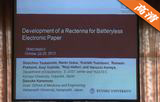
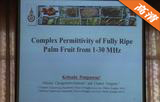
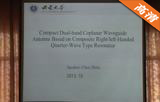

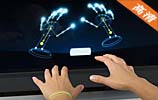



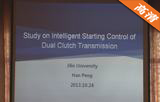


 京公网安备11010802020237号 |
京公网安备11010802020237号 |